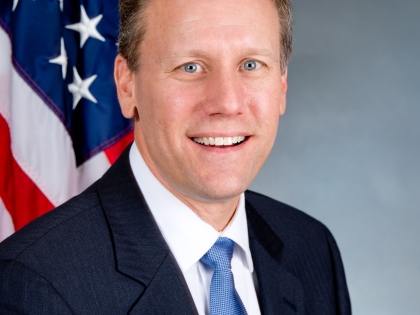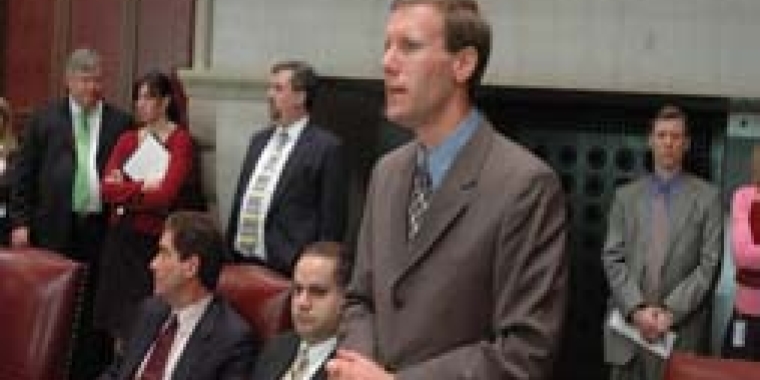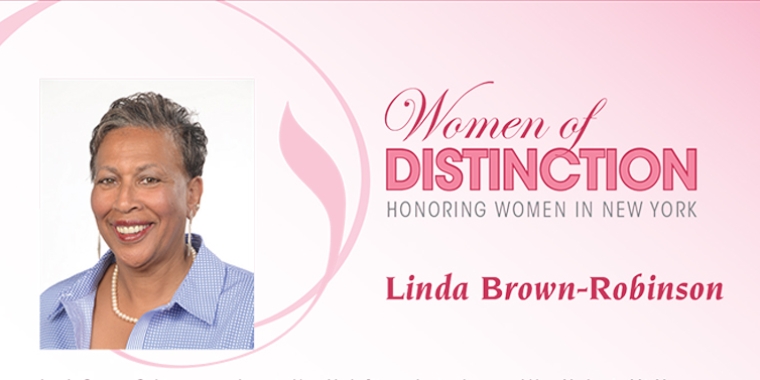
Senator Valesky Provides Update On New York Regional Interconnect Project

Last week I sat down with members of the New York State Public Service Commission, along with other Upstate New York legislators, to receive a briefing on the New York Regional Interconnect power line project -- a project I strongly oppose.
I was relieved that the PSC seemed receptive to our input, and that the State would conduct public hearings as part of the process considering NYRI’s application.
Most of all I was pleased to look around the table and see legislators from both parties participating in the meeting, which was organized by Assembly Energy Chair Paul Tonko. I was there, as were Assembly members Bill Magee (D-Nelson), RoAnn Destito (D-Rome), Brian Kolb (R-Canandaigua), and Dave Townsend (R-Kirkland), among others. I have also been pleased at the coordination that is happening on the local level, with mayors, supervisors, and county officials from the entire region working together.
This cooperation not only represents exactly the kind of bipartisan, bicameral cooperation we need in Albany, it illustrates the cooperation it is going to take to defeat this power line plan.
The Senate Energy Committee, on which I serve, will host a hearing on the NYRI plan on June 15th at Norwich High School. I hope concerned citizens attend.
There are several questions that we need to ask about this project. These are the very questions I posed to the PSC when I first registered my opposition to NYRI this spring.
First, is there any local benefit at all? Madison County consistently ranks as one of the best rural places to live in the country. This high-voltage power line suspended by 80 to 200 foot towers will certainly impact the quality of life and value of land in the immediate area. In my opinion, there is no local benefit.
Second, what will this new transmission line mean for the cost of power locally? NYRI proposes to take excess power from the Upstate portion of the grid and transfer it to parts of the state where capacity does not fit the current need. I fear this proposal will lead to even higher costs locally as our power is transmitted to more demanding and profitable markets.
Most importantly, is this a desirable direction for energy transmission in our state? I am skeptical that this privately-funded project is truly the most commonsense way to address the energy problem. It seems a better answer may be to update existing transmission lines, and not open the door to a new network of privately sited and owned high-voltage lines.
Clearly, there are many other questions that must be answered. But no matter what we do, we must work together and remain united in our opposition. That is the only way to stop NYRI.


